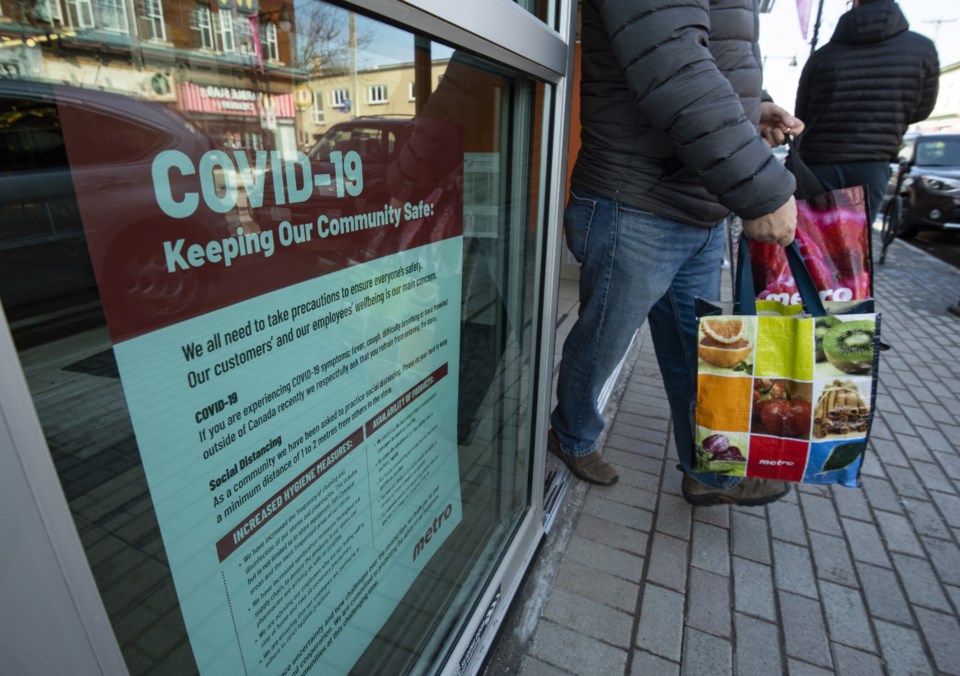A routine trip to the grocery store can be complicated by a boatload of questions in the age of COVID-19.
The pandemic has left many shoppers wondering whether they need to sanitize their cardboard cereal boxes or plastic yogurt containers before unloading their grocery bags.
But several experts say washing your hands is more important than wiping down every item you put in the fridge.
Research published last week in the New England Journal of Medicine suggests the virus can live for up to 24 hours on cardboard and up to three days on plastic.
Experts say the risk of consumers catching the novel coronavirus from picking up items in the grocery aisle appears to be quite low, but it's too early to draw definitive conclusions.
They said it's possible that someone with COVID-19 could cough, sneeze or touch an item with contaminated hands before it's brought home by another shopper. But the chances of that scenario are pretty slim.
"I think the risk of actually having the coronavirus on your stuff is actually pretty low," said Jeff Kwong, the associate director of the Centre for Vaccine Preventable Diseases at the University of Toronto.
"I think wiping it all down is just an extra precaution and then just washing your hands afterwards is probably sufficient."
University of Guelph food science professor Keith Warriner agreed that the risk of the novel coronavirus lingering on your packaged groceries is low.
Since research on the virus is still emerging, Warriner said it may be wise to take some simple precautions.
"Washing your hands before you touch anything," he said. "Wash anything before you eat it."
But how far should one go in sanitizing their foodstuffs? Should granola bar boxes be given a quick wipe? What about that plastic container of parmesan cheese?
Jennifer Ronholm, an assistant professor in the faculty of agricultural and environmental sciences at McGill University, felt grocery worries were of "minimal concern" from a public health perspective.
But if extra cleaning or disinfecting helps provide peace of mind — then go for it, she said.
"If you were very worried about it, it's not going to hurt you to wipe your food down when you get home," said Ronholm.
"But again, the chances are very minimal."
Lawrence Goodridge, a food safety professor at the University of Guelph, said he doesn't think the cleaning of plastic or cardboard items from the grocery store is really necessary.
"Research studies tend not to mimic what happens in everyday life," he said. "I think the consumers and the general public are worried because there's this image out there that those cereal boxes are literally just covered all over the surface with the virus. Well that's not the case."
When bringing groceries inside, other suggested precautions include disinfecting the countertop before and after unloading. One no-no, Goodridge said, was wearing gloves during the process.
"Gloves tend to give people a false sense of security," he said. "Because they think that they're wearing gloves that anything the virus can't get on to their hands. But gloves themselves can become dirty and spread things."
Once a product is brought home, consumers have control from there, he said. And if ever in doubt, grab the soap and turn on the tap.
"You wash your hands when you come in, you wash your hands after you've handled it, you wash your hands before you eat, prepare food, or do anything to your face that you want to do and I think you should be safe then."
This report by The Canadian Press was first published March 28, 2020.
Follow @GregoryStrongCP on Twitter.
Gregory Strong, The Canadian Press



